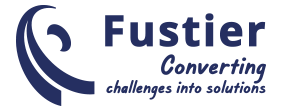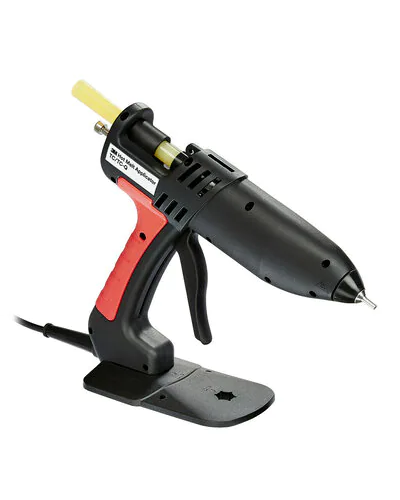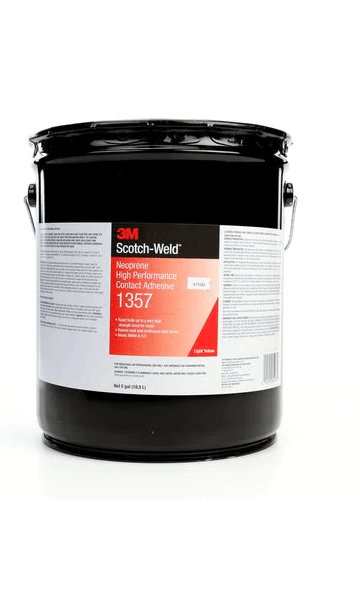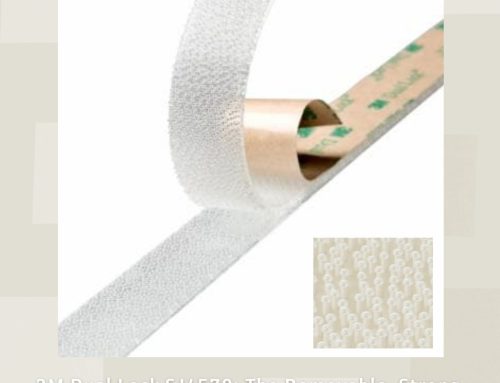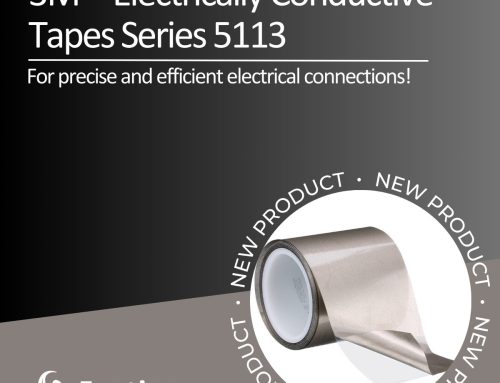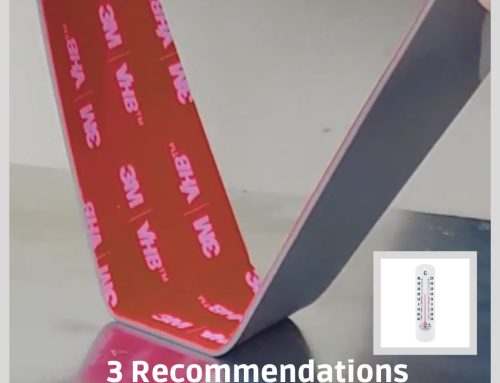If you are a professional in the industrial sector, you probably know the importance of adhesives in your projects. But did you know that there are different types of industrial adhesives for each application? In this article we will tell you in a summarized way, everything you need to know about industrial adhesives: from their characteristics and properties, the industries where they are usually used, as well as the main recommendations to choose options according to your project or application. Don’t miss this guide to choosing the perfect adhesive!
Contents
What are industrial adhesives and what are they for?
There are several types of industrial adhesives, then we will mention the most common in the manufacturing industry, as well as their main characteristics.
Epoxy Adhesives
Epoxy adhesives are adhesives that can be one or two components, which harden by chemical reaction to form a very strong and durable bond. These adhesives are resistant to high temperatures, extreme values of cold and humidity, As well as chemicals and solvents. They are used in multiple joining applications, especially metals and technical plastics.
Epoxy adhesives are very versatile and are used in a wide variety of industrial and commercial sectors such as:
- Automotive industry: they are used to join metal parts, such as engine blocks, transmission and chassis.
- Construction industry – they are useful for fixing decoration elements, bricks and ceramics.
- Aerospace industry: used to join or repair fiberglass and carbon composite parts.
- Boat making: they are used in the construction of ships to join pieces of wood and fiberglass.
- Furniture manufacturing: they are used to assemble wooden pieces and for the repair of broken furniture.
- Electronics industry: These are used to glue electronic components, such as integrated circuits, onto printed circuit boards.
- Jewellery industry: used to glue precious stones and metals to jewelry and watches.
Acrilic Adhesives
Acrylic adhesives are composed of methyl methacrylate (MMA). We can find them in versions of one and two components and are characterized by providing a very good mechanical, chemical and thermal resistance, being fast and easy to apply. They create joints that replace mechanical fasteners for both static and dynamic loads and enable better aesthetics in metal and plastic surface bonding and sealing applications. Low-odor, non-flammable formulations are available to help where odors may be bothersome or where flammability is a concern.
Acrylic adhesives are versatile and are used in a wide variety of applications, such as:
- Automotive industry: they are used in the manufacture of components for car interiors such as door panels, dashboards and gluing of plastic parts of low surface energy without surface treatment.
- Electronic industry: due to their speed, acrylic adhesives are used in the production of electronic components such as printed circuits, joining plastic parts and solar panels.
- Construction industry: Acrylic adhesives are used in bonding metal structures and metal reinforcements.
- Home appliance industry: used in fixing and assembling components in the industrial production of household appliances.
- Railway industry: they are used for the union of plastic parts and joints of high-strength composites.
- Furniture, wood and carpentry: used in plastic and metal joints.
Polyurethane Adhesives
Polyurethane adhesives are made from polymers of solid synthetic resins. They are flexible adhesives that are characterized by excellent cohesion over time and great resistance to water, high temperatures and chemicals. They are mainly used in interior and exterior bonding, insulation and sealing applications.
Polyurethane adhesives have a wide variety of applications in various sectors. Here are some of the most frequent and common applications:
- Automotive industry: Polyurethane adhesives are used in the manufacture of automobiles for the bonding of metal and plastic panels, glass, roofs and moldings. The installation and fixing of moons are also used.
- Construction industry: In construction, polyurethane adhesives are used to glue drywall, wood, insulating foam, tile, etc. In addition, they are also used to seal and join pipes and fittings in piping and conduit systems.
- Furniture, wood and carpentry: Polyurethane adhesives are used in the manufacture of furniture for gluing wood, laminates, mirrors, glass, metals and plastic materials.
- Railway industry: Polyurethane adhesives are used for ceiling installation and sealing, glass installation, and interior and exterior sealing.
- Boat manufacturing: Polyurethane adhesives are used in the construction and repair of ship hulls, windows, wood, interior and exterior panels.
- Electrical and electronics industry: Polyurethane adhesives are used in sealing electronic components and in fixing metal, plastic and glass parts.
Hot Melt Adhesives
Hot melt adhesives are characterized by the fact that they are applied in a solid state and melted by heat to bond the substrates. They are widely used in the packaging industry and in the manufacture of textile products, in sealing and joining applications of plastics and textiles.
Hot melt adhesives have a wide variety of applications in various sectors, these are some of their most frequent applications:
- Packaging industry: Hot melt adhesives are widely used in the manufacture of cardboard boxes, cases and packages of all kinds. They provide a strong and fast hold to join the different parts of the packaging.
- Footwear industry: Hot melt adhesives are used to bond shoe parts, such as the sole and upper of the shoe. They provide a strong and durable bond that resists wear and tear.
- Automotive industry: Hot melt adhesives are used in bonding vehicle interior coatings and fixing electronic components.
- Furniture, wood and carpentry: hot melt adhesives are used in the joining of wood parts and laminated materials in the manufacture of furniture. They provide a fast and strong bond without the need for nails or screws.
- Paper and cardboard industry: Hot melt adhesives are used in bonding different layers of paper and cardboard in the manufacture of books, magazines and other paper products. They provide a strong and durable bond that resists handling and transport.
Water-based Adhesives
Water-based adhesives are adhesives that have water as a solvent, the base of which can be synthetic or vegetable. They are used in applications that require low toxicity and high strength. We can find them in the manufacture of food and pharmaceutical products, but also in other industries such as furniture manufacturing, carpentry, foam bonding and in the manufacture of special vehicles.
In general, water-based adhesives are a popular choice due to their ease of use, low environmental impact, and high resistance to heat and moisture. In addition, their ability to bond in a wide variety of materials makes them suitable for a large number of applications. Here are some of them.
- Packaging industry: they are used in the production of cardboard boxes and packaging, envelopes, adhesive labels and bags.
- Construction industry – they are used in the installation of insulation, decorative coatings and floors.
- Automotive industry: They are used in the manufacture of automotive parts, such as panels, seats, and carpets.
- Furniture, wood and carpentry: they are used in the production of furniture, such as chairs, sofas, tables and cabinets.
- Textile industry: they are used in the production of clothing and fabrics, such as upholstery fabric and carpets.
Cyanocrylate Adhesives
Cyanocrylate adhesives are a type of glue that is characterized by being practically instantaneous, which is why they are also known as ultrafast adhesives. These adhesives are designed for processes with requirements for high strength in a small bonding area and fast curing. They can be used in various materials, including metals, leather, paper, rubbers, technical plastics and certain LSE (Low Surface Energy) plastics.
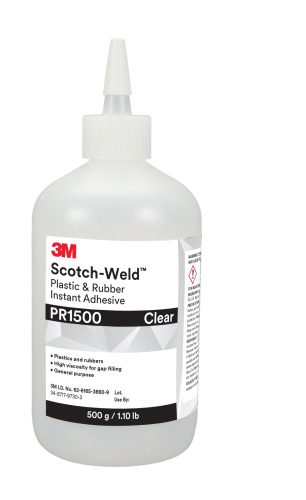 Cyanocrylate adhesives are widely used in different applications due to their high fast and efficient bonding capacity. Some of its most frequent applications:
Cyanocrylate adhesives are widely used in different applications due to their high fast and efficient bonding capacity. Some of its most frequent applications:
- Electronics industry: These are used to fix electronic components, such as chips and printed circuit boards.
- Automotive industry: they are used to join plastic, rubber and metal parts in the manufacture of some components.
- Footwear industry: they are used to join soles and other footwear components.
- Wood industry: they are used to glue pieces of wood and to fill cracks and holes in wood.
- Medical industry: they are used to seal small wounds and for fixing medical devices.
- Handicraft industry: they are used to glue materials such as paper, cardboard, fabric and metals.
- Home repairs: used to repair plastic, ceramic, glass and metal objects.
- Applications in jewelry and watchmaking: they are used to join metal components in the manufacture of jewelry and watches.
Contact Adhesives
Contact adhesives are adhesives that are applied to both surfaces that are to be bonded and adhere instantly once they are put into contact. They are widely used in the construction and furniture industry.
In general, industrial contact adhesives are widely used in a variety of industries and applications due to their fast, strong, and durable bonding properties.
- Furniture, wood and woodwork: Contact adhesives are widely used in the woodworking industry to join woods and boards to make doors, windows, furniture and other wood products.
- Automotive industry: In the automotive industry, contact adhesives are used to join plastic and metal parts, including body panels, interior and exterior parts, upholstery and other components.
- Construction industry: In the construction industry, contact adhesives are used to bond drywall, flooring, laminate, carpet and other building materials.
- Shoe manufacturing: Contact adhesives are widely used in the manufacture and repair of footwear to bond the uppers and bottoms of shoes, such as the sole and instep.
- Leather goods industry: Contact adhesives are also used in the manufacture of bags and suitcases to join parts of leather, fabric and other materials.
- Packaging industry: Contact adhesives are used in the packaging industry to bond boxes, cartons and other packaging materials.
Tips for choosing the right industrial adhesive for my application.
However, choosing the right industrial adhesive can depend on several factors including the type of materials to be bonded, the environmental conditions in which the adhesive will be used, the drying time required, and the level of strength expected from bonding.
Here are some tips for choosing the right industrial adhesive for your application:
- Know the materials you need to bond: Each adhesive is designed to adhere to certain types of materials. Make sure you know what materials you need to bond and look for an adhesive that has been tested on those materials.
- Consider environmental conditions: factors such as temperature, humidity and light exposure can affect the effectiveness of the adhesive. Be sure to choose an adhesive that is suitable for the environmental conditions in which it will be used.
- Determine the required drying time: Some adhesives dry faster than others, and drying time can be important depending on the application.
- Determine the level of strength needed: Some adhesives are stronger than others, be sure to look for an adhesive that has the strength needed for your application.
- Test the adhesive before using it in the application: It is always good practice to test the adhesive on a small area before applying it on the entire application. This will allow you to ensure that the adhesive is suitable for the task you will be performing.
- All the information about characteristics and properties can be found in the technical sheets of the products.
In our Fustier 3M Product Store you can find and download all the relevant information of each of our adhesives Industriales 3M. Data Sheets (TDS), Safety Data Sheets (SDS) and Test Reports EN45545; as well as some demonstration videos.
Want to know more?
Or for more information and advice on industrial tapes and adhesives, write to us through our ONLINE CHAT,
Email: service@fustier.es
FUSTIER IS INNOVATIVE TECHNOLOGY IN ADHESIVE PRODUCTS AT SERVICE OF THE INDUSTRY
ANY QUESTION?
We are specialists in the conversion and manufacture of adhesive products at the service of the industry.
